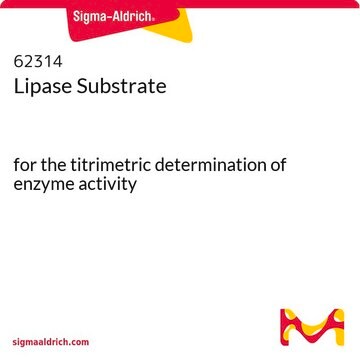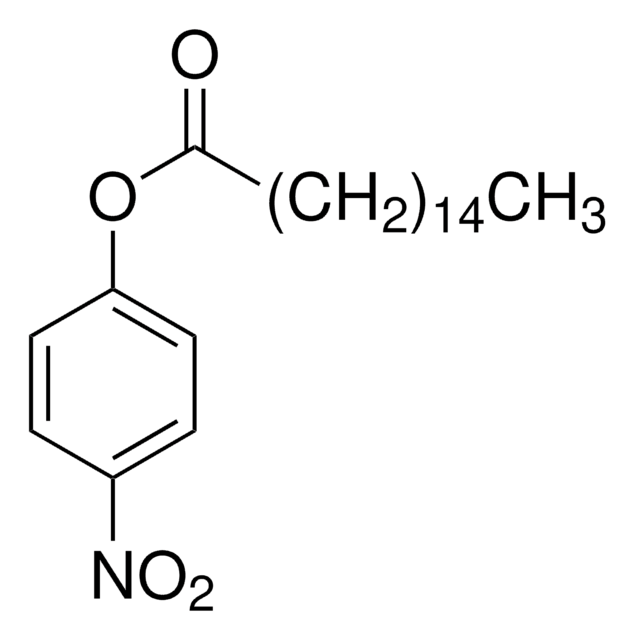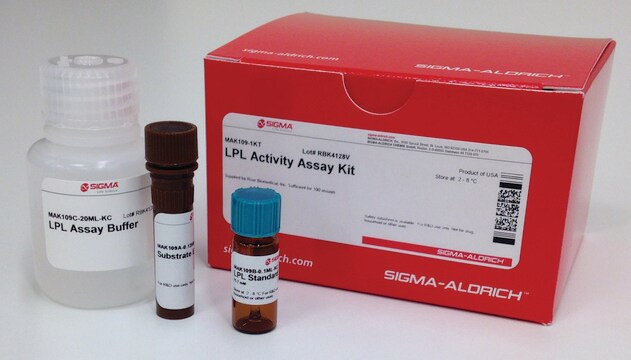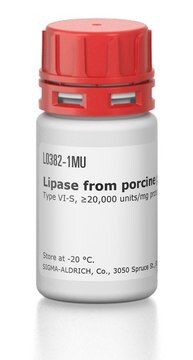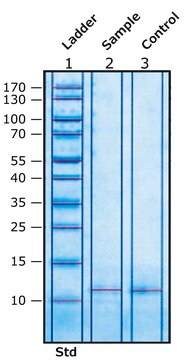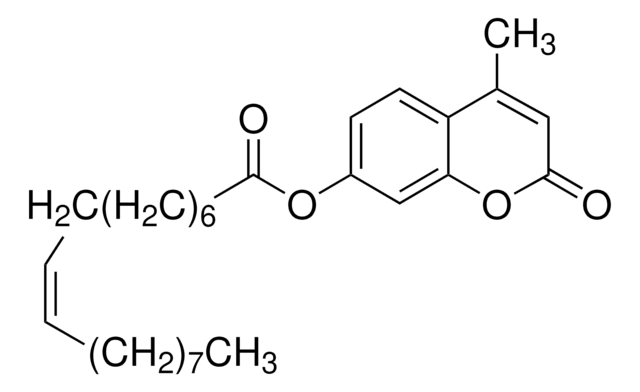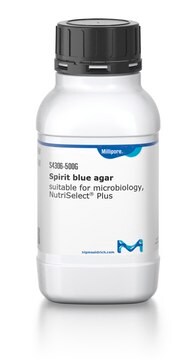30058
Lipase Substrate
≥95% (HPLC)
Sinonimo/i:
1,2-Di-O-lauryl-rac-glycero-3-(glutaric acid 6-methylresorufin ester)
About This Item
Prodotti consigliati
Saggio
≥95% (HPLC)
Stato
powder
Solubilità
ethanol: soluble (10mg/mL)
Fluorescenza
λex 529 nm; λem 600 nm in 0.1 M Tris pH 8.4
Temperatura di conservazione
2-8°C
Stringa SMILE
CCCCCCCCCCCCOCC(COC(=O)CCCC(=O)Oc1ccc2N=C3C=CC(=O)C(C)=C3Oc2c1)OCCCCCCCCCCCC
InChI
1S/C45H69NO8/c1-4-6-8-10-12-14-16-18-20-22-31-50-34-38(51-32-23-21-19-17-15-13-11-9-7-5-2)35-52-43(48)25-24-26-44(49)53-37-27-28-39-42(33-37)54-45-36(3)41(47)30-29-40(45)46-39/h27-30,33,38H,4-26,31-32,34-35H2,1-3H3
FYOMYGYHAZESGQ-UHFFFAOYSA-N
Categorie correlate
Descrizione generale
Applicazioni
Codice della classe di stoccaggio
11 - Combustible Solids
Classe di pericolosità dell'acqua (WGK)
WGK 3
Punto d’infiammabilità (°F)
Not applicable
Punto d’infiammabilità (°C)
Not applicable
Dispositivi di protezione individuale
Eyeshields, Gloves, type N95 (US)
Scegli una delle versioni più recenti:
Possiedi già questo prodotto?
I documenti relativi ai prodotti acquistati recentemente sono disponibili nell’Archivio dei documenti.
I clienti hanno visto anche
Il team dei nostri ricercatori vanta grande esperienza in tutte le aree della ricerca quali Life Science, scienza dei materiali, sintesi chimica, cromatografia, discipline analitiche, ecc..
Contatta l'Assistenza Tecnica.